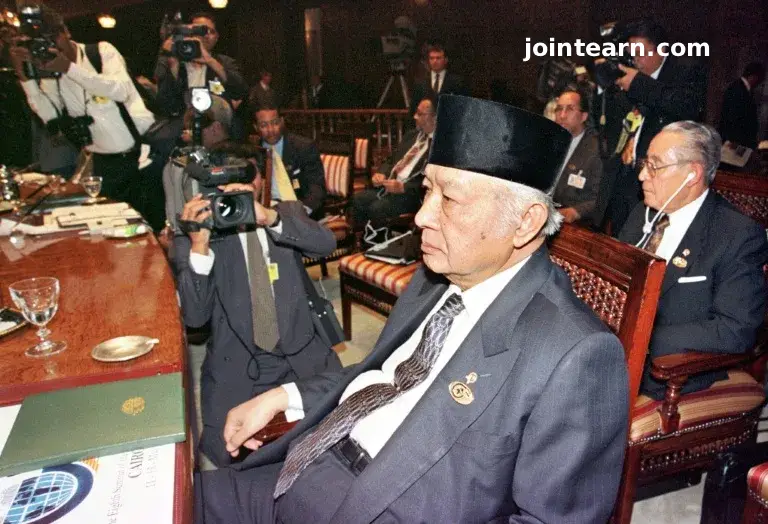
A proposal to honor Indonesia’s former president and military ruler, Suharto, with the title of National Hero has triggered a wave of backlash across the country, especially among civil society groups and human rights activists. Critics argue that the move threatens to whitewash a painful chapter of Indonesia’s past and undermine democratic values.
Suharto, who ruled Indonesia with an iron grip for more than 30 years after seizing power in 1967, is a highly controversial figure. His authoritarian regime was characterized by widespread corruption, severe suppression of political dissent, and documented human rights abuses, including alleged mass killings and military crackdowns targeting political opponents.
Public Outcry as Activists Warn of ‘Historical Betrayal’
On Tuesday, nearly 500 Indonesian activists, scholars, journalists, and public figures signed an open letter addressed to current President Prabowo Subianto, strongly opposing the idea of naming Suharto a national hero. The letter described the nomination as:
“A betrayal of victims, a distortion of Indonesia’s democratic history, and a dangerous step towards historical revisionism for the younger generation.”
The letter, made public during a press conference in Jakarta, urged President Prabowo—who is also Suharto’s former son-in-law—not to include Suharto in the official shortlist of national heroes, which is set to be finalized on November 10.
Former Attorney General Marzuki Darusman, one of the signatories, emphasized that honoring Suharto ignores the “deep wounds” inflicted on thousands of Indonesians who suffered under his rule.
Hero Nomination Sparks Political and Social Debate
State Secretary Prasetyo Hadi confirmed last week that President Prabowo was reviewing candidates for the title of National Hero. The president has the full legal authority to approve or reject nominations, making the decision highly politically charged.
The proposal has ignited public discourse not only on Suharto’s legacy but also on the state of Indonesian democracy today. Critics point to rising income inequality, elite politics, and recent violent protests against Prabowo’s administration as evidence that honoring an authoritarian leader is a step backwards.
Leading human rights organization Amnesty International Indonesia joined the chorus of opposition. Executive Director Usman Hamid questioned Suharto’s moral eligibility for the title, saying:
“By law, national heroes must demonstrate integrity, social justice, and humanitarian values. Suharto’s record contradicts each of these standards.”
Suharto’s Legacy: Stability or Suppression?
Suharto’s supporters often cite his role in expanding Indonesia’s economy and preserving national unity, but his critics argue that such achievements came at an unacceptable cost. His rule saw:
- The systematic suppression of civil liberties
- The forced disappearance and killings of dissidents
- Rampant corruption, with the Suharto family accused of amassing billions
- Violent repression of student protests, especially in 1998
- Persecution in regions such as East Timor and West Papua
The public memory of Suharto remains sharply divided, but historical records and ongoing testimonies continue to shed light on the darker aspects of his rule.
What’s at Stake for Indonesia’s Future?
The controversy highlights broader tensions in Indonesia as it grapples with its past while charting a path forward. Many fear that bestowing the honor of National Hero on Suharto would signal a normalization of authoritarianism at a time when global and domestic pressures already test Indonesia’s democratic institutions.
As November 10 approaches—the deadline for the national hero list—the decision will likely influence Indonesia’s political narrative for years to come.


Leave a Reply